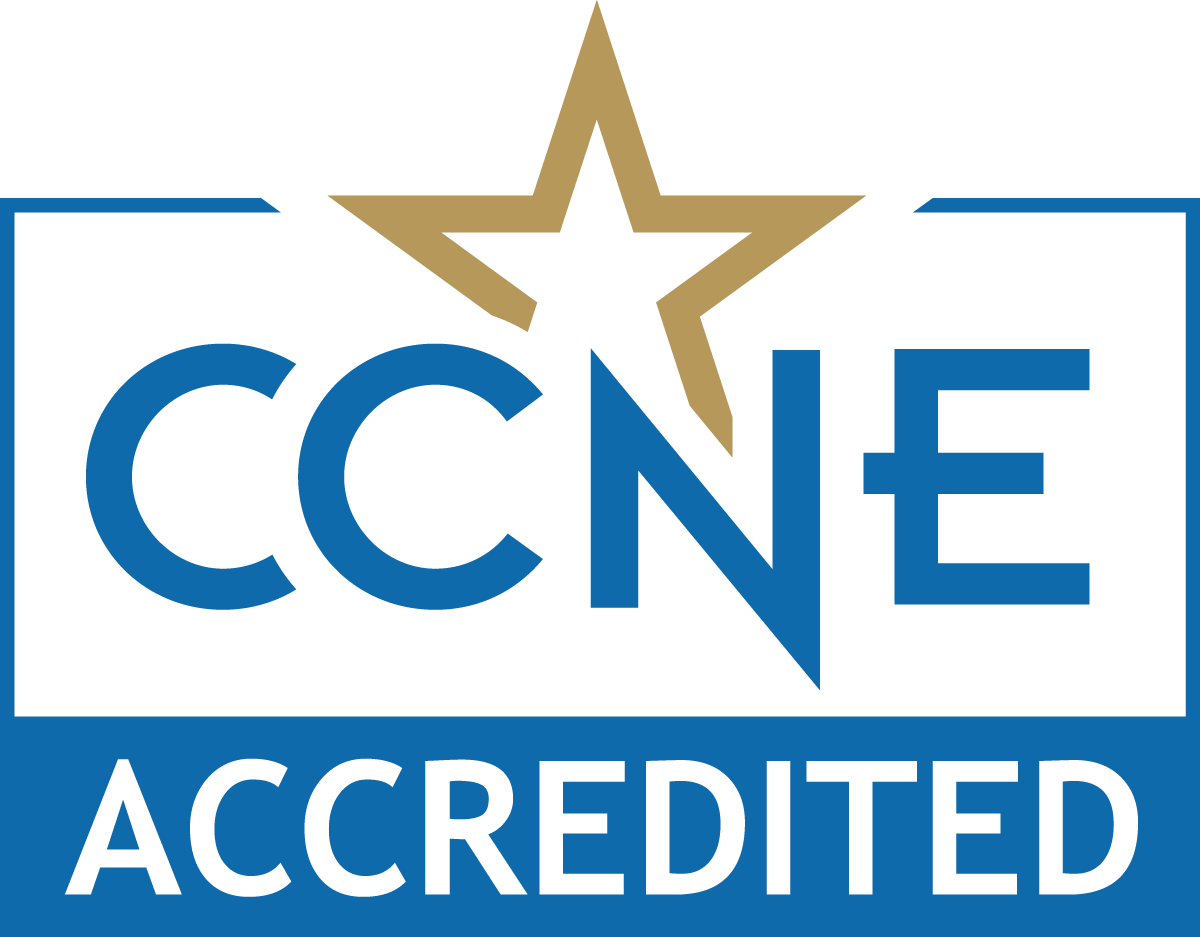Master of Science in Nursing – Psychiatric Mental Health Nurse Practitioner Specialization

Pursue Your Advanced Practice Degree with a Psychiatric Nurse Practitioner Online Program
The online Master of Science in Nursing – Psychiatric Mental Health Nurse Practitioner (MSN-PMHNP) Specialization at Post University provides the opportunity to build the insights and skills you could use to make a positive impact on the mental health of your patients. Your advanced nursing practice program emphasizes critical areas of primary care—assessment, prevention, diagnosis, and management of chronic and acute conditions—with an in-depth focus on psychiatric issues. Coursework covers assessment, diagnosis, psychopharmacology, interventions, and more, across the lifespan. Plus, it offers preceptorship experiences to translate online classroom learnings to different mental health situations.
If you have a BSN degree, one year of work experience, and are passionate about providing patient-focused care as a member of a healthcare team, our online MSN-PMHNP specialization may be for you.
Commission on Collegiate Nursing Education (CCNE) Programmatic Accreditation
The baccalaureate degree program in nursing and master’s degree program in nursing at Post University is accredited by the Commission on Collegiate Nursing Education, 655 K Street NW, Suite 750, Washington, DC 20001, 202.887.6791.
The Psychiatric Mental Health Nurse Practitioner Program Specialization at a Glance
 Flexible Online Classes
Flexible Online Classes
![]() Monthly Start Dates
Monthly Start Dates
![]() 51-54 Credit Hours
51-54 Credit Hours
![]() 34-Month Program
34-Month Program
![]() Individualized Precepted Clinicals
Individualized Precepted Clinicals
Practice-Focused Curriculum for Real-World Skills
Coursework for your psychiatric nurse practitioner online program is designed to help you build the foundation of insights and practical skills necessary to:
- Understand diagnoses of common psychopathological disorders
- Learn specific psychiatric-mental health assessment methods and tools
- Develop an individualized plan of care for children with psychiatric mental health needs
- Work with adults and older adults with mental healthcare needs in primary and acute mental healthcare settings
- Enhance patient, healthcare, and organizational outcomes critical to building quality and safe patient care
- Engage in leadership and scholarship activities
- Evaluate the impact and influence between legal, social, political, economic, and ethical issues, and their influence on healthcare, policy, and healthcare management of patient care services
- Integrate evidence-based clinical guidelines, research, clinical judgment, and interdisciplinary perspectives to improve practice, health, and organizational outcomes
- Advocate for ethical and culturally sensitive policies that impact access, equity, quality, and cost
- Employ knowledge of organizational practices and complex systems to enhance delivery and quality of healthcare services
- Apply sound ethical solutions to complex issues concerning the care of individuals and populations, and systems of care
- Respect diverse culture and beliefs while engaging patients as partners in their health care decision-making process
- Engage in lifelong learning and commitment to the discipline of advanced nursing practice
State Authorization, Licensure, and Disclosures
While the Master of Science in Nursing (Adult Gerontology Primary Care Nurse Practitioner, Family Nurse Practitioner, and Psychiatric Mental Health Nurse Practitioner specializations) is not designed to fulfill licensure requirements in an individual state, the program may be used to partially fulfill licensure requirements.
Post University assists in researching and providing information regarding licensure; however, each state has different requirements for such licensure outside of the required education. Such state requirements may include licensure exams, background checks, certain work experience, and more. It is ultimately the responsibility of each student to manage their own licensure process and to ensure that all requirements are met in order for the student to obtain licensure. Post University does not speak on behalf of any licensing board or body and does not guarantee licensure. Requirements for licensure are subject to change without notice.
The table at the following link shows whether Post University, with completion of the appropriate curriculum, does or does not fulfill the educational requirements for a specific license:
Curriculum, Course Descriptions, & Program Outcomes
Please see the University Catalog for the online MSN program’s full curriculum with course descriptions and program outcomes.
MSN Online Admissions Requirements
Our admissions team is available to walk you through the application process and answer any questions on the online MSN degree program requirements. Contact us to learn more!
Tuition & Payment Options
View the Tuition and Fees section for information for the online MSN degree program costs.
We offer several funding options as you pursue your education. Please see the Scholarships and Other Ways to Save section to learn more about our:
- External Scholarships
- Nursing Tuition Reductions
- Education Partnership Program Tuition Reduction
- Post Eagle Program (Military)
- Payment Plans
- And more!
This program is not currently eligible for Title IV funding for new enrollments.

MSN – Psychiatric Mental Health Nurse Practitioner Specialization FAQs
Pursuing your MSN degree online is a big step. You probably have some questions. We have answers.
What does PMHNP stand for?
PMHNP stands for “Psychiatric-Mental Health Nurse Practitioner.” These specialized nurse practitioners are trained to provide mental health and psychiatric care, including diagnosing, treating, and managing various mental health conditions and disorders. They play a crucial role in delivering mental health services and improving the well-being of individuals dealing with mental and emotional challenges.
What does a psychiatric mental health nurse practitioner do?
Psychiatric mental health nurse practitioners (PMHNP) perform a range of essential duties in the field of mental health care. They conduct thorough assessments and diagnoses of mental health conditions, developing personalized treatment plans that often include psychotherapy and medication management. PMHNPs monitor the progress of their patients, make necessary adjustments to treatment strategies, and prescribe psychotropic medications as needed. They also offer psychotherapy sessions to help patients cope with and manage their mental health challenges. Additionally, PMHNPs advocate for their patients’ mental health needs, collaborate with other healthcare professionals, and educate individuals and communities about mental health awareness and prevention.
Where can PMHNPs work?
Psychiatric mental health nurse practitioners (PMHNP) can work in diverse healthcare settings, providing mental health care across various contexts. They are commonly found in outpatient mental health clinics and private psychiatric practices, offering diagnostic assessments, therapy, and medication management. PMHNPs also work in inpatient psychiatric units within hospitals, assisting in treating and caring for individuals with acute mental health issues. They can be employed in community mental health centers, schools, and correctional facilities, addressing the unique mental health needs of these populations. Additionally, some PMHNPs are involved in telemedicine (telepsych) health services, providing remote mental health care to individuals who may not have easy access to traditional healthcare facilities.
How long does it take to become a PMHNP?
Becoming a Psychiatric Mental Health Nurse Practitioner (PMHNP) typically involves several years of education and clinical training. To begin, you will need to complete a Bachelor of Science in Nursing (BSN) degree, which usually takes around four years. Following this, you will need to gain clinical experience as a registered nurse (RN), which can take anywhere from 1 to 2 years. Next, enrolling in a Master of Science in Nursing (MSN) program with a focus on psychiatric-mental health can take an additional 2 to 3 years. Overall, the timeline to become a PMHNP is often around 7 to 9 years, taking into account the educational and clinical components of the journey. The specific duration may vary depending on factors such as prior education and the structure and format of the degree programs you pursue.
Are there online psychiatric nurse practitioner programs?
Yes. Post University’s Online Master of Science in Nursing – Psychiatric Mental Health Nurse Practitioner Specialization offers flexible online classes, with individualized practice experiences.
Is PMHNP school hard?
Pursuing education to become a Psychiatric Mental Health Nurse Practitioner (PMHNP) is academically and professionally demanding. It requires a strong commitment to studying and clinical training. The process involves a rigorous and comprehensive curriculum, covering various aspects of mental health assessment, diagnosis, and treatment. Additionally, PMHNP programs often demand clinical hours and experience working with individuals who have diverse mental health needs, adding to the complexity. However, with dedication, passion, and a genuine interest in mental health, many find the journey rewarding.
Enroll in Your Psychiatric Mental Health Nurse Practitioner Program at Post!
At Post University, we are focused on your success, in and out of the classroom. A student success advisor will work with you one-on-one to answer your questions and help you address challenges throughout the MSN-PMHNP program. We are here to help you achieve your Master of Science in Nursing – Psychiatric Mental Health Nurse Practitioner Specialization career goals.
Ready to make a difference in the mental healthcare needs of your community? Contact us to learn more about our online MSN with a specialization in psychiatric mental health nurse practitioner program.
This program is not currently eligible for Title IV funding for new enrollments.